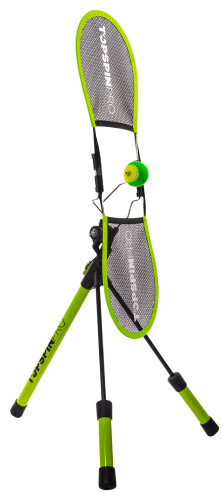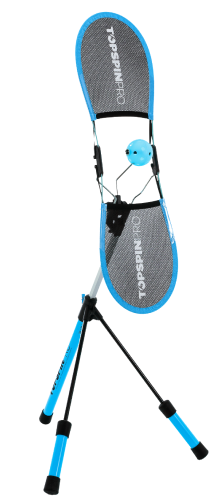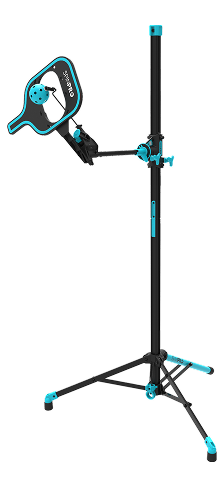 Credit: Zack Taylor
Credit: Zack Taylor
What we'll cover in this article:
Stay in the loop!
Want to be updated when we publish? Be sure to sign up for our newsletter. No spam, we promise!
For pickleball enthusiasts at all levels, embracing the Inner Game Of Pickleball can significantly elevate your game, especially as you venture into tournament play. This guide demystifies sports psychology and shows you how to harness its power to your advantage.
What Is Sports Psychology?
Sports psychology bridges the gap between mind and body, essential for athletes aiming to excel. It explores how your mindset affects performance and how physical activity impacts your mental and physical health. Mastering your mental game is as crucial as physical prowess, particularly in a strategic game like pickleball.
Improving Your Inner Game
Just as your body requires practice to improve, so does your mind. There are mental skills you can develop to help your overall pickleball game. The first step? Learning how to stay motivated and keep improving.
Staying Motivated
Turning up to the courts day in and day out is not always easy, especially if you are pushing hard to achieve certain goals. Here’s some ways to help you stay motivated:
Intrinsic Motivation - Play pickleball for the joy of the game, not just for external rewards. Internal motivation sustains your interest and commitment, driving improvement. Set up practice and drills that you will enjoy, even if they are hard work. Doing things because you “have to” do them or for "other people" will not keep you motivated for long.
Growth Mindset - This will take practice, but adopting a growth mindset, the belief that abilities can be developed through dedication and hard work, is crucial. Viewing challenges as opportunities to learn rather than obstacles can transform your approach to the game. Give yourself rewards when you achieve certain goals rather than focusing on what you haven't achieved. Knowing where you have been successful and already grown helps motivate you for future hard work.
Build A Foundation
Building a solid foundation for your game which includes growing your pickleball experience, support network and skills will help fuel your motivation. Building your foundation strong and varied will keep both your mind and body happy. Here's some ways to start:
Setting Goals - Set clear, achievable goals for your pickleball development. Whether it's improving your serve accuracy or mastering a new shot, specific goals give you direction and a sense of purpose. They should also not be so difficult that you fail. Keep them small and achievable and reward yourself for hitting those targets. You want your self confidence and belief to keep growing.
Peer Learning - Engage with the pickleball community. Learning from more experienced players and sharing your own experiences can provide valuable insights and motivation. It also helps you feel more supported in your journey relieving some of the pressure.
Competitive Play - Participate in friendly competitions. Competition is a powerful tool for development, offering insights into your mental and physical game. Build up your experience in this area before you do anything too daunting. It takes practice time to implement your sports psychology strategies under pressure.
Extra Reading
Many of you have probably heard of the book "The Inner Game Of Tennis". Written 50 years ago, this book has been at the forefront of sports psychology since its release. Many of its principles can be applied to pickleball too, and it's no doubt only a matter of time before the official pickleball version arrives! Also if you want to know more about "The Health Benefits Of Pickleball," including mental health, you can read more about it in our article.

Controlling Your Inner Game
Billie Jean King famously said, "Pressure is a privilege, it only comes to those who have earned it." Facing pressure usually means you're on the verge of achieving something significant, whether it's gaining an advantage, winning a game, or clinching a match. However, handling pressure is easier said than done. Even with top-notch pickleball skills, your mind can become your biggest obstacle. But remember, consistent practice leads to lasting improvement.
Below are some strategies you can practice to turn pressure into your ally during a game:
Positive Self-talk
Replace negative thoughts with positive affirmations. Encouraging self-talk boosts confidence and reduces performance anxiety. Using Instructional Self-Talk is also better than negative. Talk yourself through what you need to change in the next few points.
Breathing Techniques
Use deep breathing to manage in-game anxiety. A few deep breaths can calm your nerves and improve focus. It could be something a simple as taking a deep breath before you serve or return.
Acceptance
Accept that mistakes are part of learning. A large percentage of points won and lost are through errors. Instead of dwelling on those errors, focus on the next point. Don’t lose the match in your mind before it's actually over.
Mindfulness and Visualization
Practice mindfulness to enhance concentration and stay present during play. Visualization techniques, where you imagine executing certain shots, can improve technique and build confidence. You can use this in a game and also during practice when developing your skills.
Routine
Routine is a good way to ensure you are focused at the right moment. Establish a pre-point (serve or return) routine to foster a focused state of mind. Consistent routines help manage nerves and improve shot consistency. Other routines might be your pre match routine or having your bag or equipment set up in a certain way.
Where Should I Start?
Start Small
Incorporate one or two techniques at a time. For example, begin with positive self-talk and a simple pre-point routine. This stops you from becoming overwhelmed with things to focus on. Build in these techniques so that they become a habit and then you can add in something new.
Practice Consistently
Mental skills, like physical ones, require regular practice. Dedicate time to mental training on and off the court.
Reflect, Seek Feedback and Adjust
After games or practice sessions, reflect on your mental performance. What worked? What didn't? Adjust your approach accordingly Also, don't hesitate to ask for feedback from coaches or fellow players. External perspectives can provide insights into your mental game.
Master Technique With The SpinPro
If you want to add more spin to your game or master certain techniques try the SpinPro. It's a simple and effective way to learn the correct biomechanics without the pressure of an incoming ball!
Conclusion
Remember, improving your mental game is a journey. Celebrate small victories and enjoy the process of becoming a more resilient, focused, and motivated player.
By integrating sports psychology principles into your practice, you can enhance your performance, enjoy the game more, and achieve your pickleball goals. Whether you're just starting or looking to elevate your game, focusing on the mental aspects is just as important as the physical. Embrace the challenge, and watch your game transform.
FAQs
-
What is sports psychology and why is it important in pickleball?
Sports psychology bridges the gap between mind and body, exploring how your mindset affects performance and how physical activity impacts mental and physical health. Mastering your mental game is as crucial as physical prowess in a strategic game like pickleball.
-
How can I stay motivated in pickleball?
Focus on intrinsic motivation by playing for the joy of the game rather than external rewards. Adopting a growth mindset, where you view challenges as opportunities to learn, can also help sustain your interest and commitment.
-
What strategies can help me handle pressure during pickleball games?
Use positive self-talk to replace negative thoughts, practice deep breathing techniques to manage anxiety, and accept that mistakes are part of learning. Mindfulness and visualization can also enhance concentration and confidence.
-
How can I build a solid foundation for my pickleball game?
Set clear, achievable goals to give you direction and purpose. Engage with the pickleball community to learn from experienced players and participate in friendly competitions to gain valuable insights into your mental and physical game.
-
Where should I start when improving my mental game in pickleball?
Start small by incorporating one or two techniques at a time, such as positive self-talk and a simple pre-point routine. Practice these consistently and reflect on your performance, seeking feedback to adjust your approach as needed.
Links Related to This Article
Enjoyed this article?
Be sure to sign up for our newsletter and we'll keep you up to date about new posts


